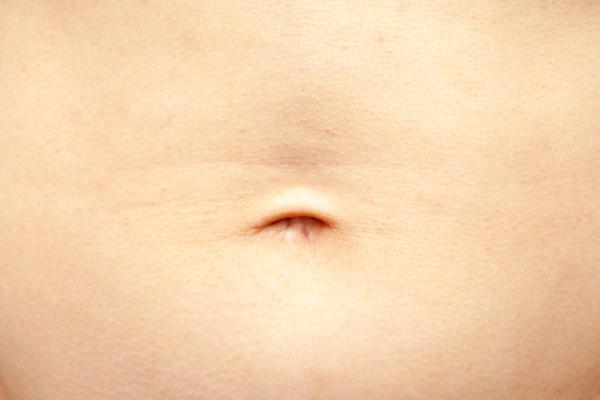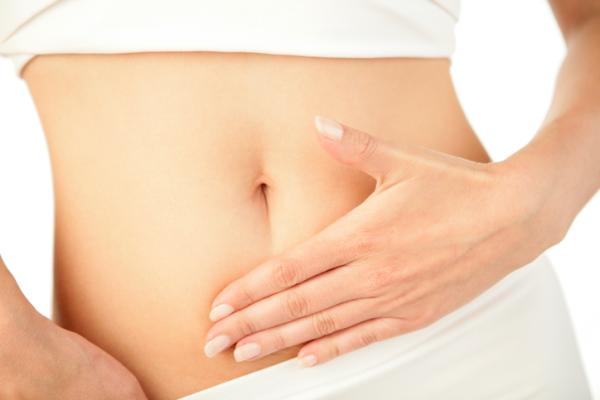
There are different areas of the body that, due to their disposition and shape, have a tendency to smell bad. Discharge, the armpits or the navel are clear examples of those areas that, if they are not washed regularly and in a correct way, can end up causing bad smell.
But not only hygiene, or lack of it, is behind a possible bad odor in your navel. There are many underlying diseases and conditions that can manifest themselves in this way. Are you wondering why does my smell bad? Do you want to know the reason for this strange odor? In the following oneHOWTO article we will give you the answer so that you can act quickly and finish once and for all with this nuisance.
Bad hygiene: main cause why a belly button smells
Due to the very shape and nature of the navel or belly button, depending on which cases, especially when its shape is deeper and narrower, it is possible that its cleaning is overlooked or difficult. On the other hand, although it is cleaned with care, there is always the possibility that there is moisture inside. In any case, whether there is no good hygiene or if you wash but there is moisture inside it is very possible for your belly button to smell bad.
In any case, if this is the reason for the bad smell in the belly button, you are facing the easiest case to overcome. You should simply pay more attention to your navel's hygiene. To do it correctly you must use one of those earbuds that are usually used to clean the ears and, later, consciously dry it with a clean towel.
You must know that a proper hygiene of your navel is not only necessary to avoid it smelling bad, but it is also a way to prevent infections in the navel.
Omphalitis: infection in the belly button
Omphalitis is a problem that is more common in children than in adults although in the latter it is still quite frequent. It is an infection in the belly button that, among other symptoms, causes redness and swelling of the navel and the surrounding area. It is normal for there to be suppuration and bad smell. The fluid that is exuded is usually transparent or yellowish and pus may occasionally appear.
The most frequent cause of omphalitis is lack of hygiene or inadequate hygiene. In adults it is usually a fairly localized and slowly evolving infection. In newborn babies, omphalitis is better known and is due to infection of the cord and umbilical area. To treat omphalitis you must have a proper navel hygiene, dry the area very well after each bath and then apply an antiseptic cream or similar.
If you have discomfort that does not improve in 3 or 4 days you should go to your doctor to rule out major problems and take action as soon as possible. If your doctor thinks fit, he may prescribe an antibiotic cream and even an oral antibiotic in cases of more severe or persistent infections. In extreme cases surgery may be necessary (similar to the operations of fistulas and cysts).
Recurrent omphalitis
Cases of omphalitis can occur even when proper navel hygiene is followed. This type of omphalitis is usually recurrent and the doctor should study the existence of health problems behind these infections.
The most frequent causes of recurrent onphalitis are:
- Uracosinus: a disease of genetic origin characterized by incomplete closure of the urachus (a conduit that connects the bladder and umbilical cord to the fetus and closes naturally after birth).
- Umbilical hernia
- Endometriosis
- Epidermal cyst

Bad smell in belly button due to bacteria
As we have explained before, people who have deep navels may find it difficult to clean their belly button. The fact is that the accumulation of sweat in the navel causes the bacteria can grow inside and cause this undesirable bad smell. At this point, it must be said that obesity is a factor that increases the risk of suffering a bad smell in the navel and can also prevent the correct cleaning of this area.
The consequence is that in that hole bacteria will proliferate, being able, besides the bad smell, to end up causing pain, discomfort, secretion and even the appearance of a wound. The key to avoiding it is to always keep the navel dry, both when you get out of the shower, and when you exercise. Be that as it may, correct belly button hygiene is a must.

Fluid in belly button: possible umbilical fistula
Many people may not know this, but the reality is that the belly is directly connected to the intestine. In fact, the main function of the navel, when we are in the womb, is to serve as a tube through which our mother feeds us. Once we are born and cut the umbilical cord, making the knot that will form the navel, this duct should be sealed. However, in some cases an intestinal fistula may be created, that is, a connection between the intestine and the navel that causes the navel to suppress some of the substances that make their way through the digestive tract.
This could be one of the causes of a smelly belly button, a very common symptom in addition to suppuration and pain in the area
Smelly belly button: it can be fungi
Yeast infection, which is commonly known as candida, is an infection that mostly affects young adolescents or young children, although it is also possible to pass it on to an adult. It is also possible for a newborn to develop this problem, in these cases due to exposure to vaginal fungi in the mother during childbirth.
Candida albicans, the fungus that causes these infections, is an organism that develops in warm and humid environments, so that the navel becomes the perfect environment for its infection. When this occurs, different symptoms appear as:
- The belly button smells bad even after cleaning it.
- There are yellow secretions.
- There may be pain as well as discharge.

How to clean the belly button
When a belly button smells bad due to a bacterial proliferation, for example, when there is no proper hygiene or when the sweat is not reached, there are a number of natural remedies that we have at our disposal to clean the navel and effectively get rid of it. The best remedies are as follows:
Tea Tree Oil
Tea tree oil is one of the remedies that has the ability to clean your belly button in a deep and effective way. Also, the way to do it is very easy. You just need some damp cotton with a couple of drops of oil before you go to bed and leave it on during the night to take effect.
Lavender oil
Another one of the best natural remedies for a smelly belly button that you have at your disposal is the lavender oil. A remedy that, besides helping the healing, is able to scent the area and stop the bad smell. All you have to do is mix a few drops of this oil with water and, wetting it in a cotton, clean the area a couple of times a day.
Rosemary alcohol
Rosemary spirit is a good remedy, not only to get rid of a smelly belly button, but also to make it smell wonderful. Washing it with this alcohol, not only perfumes the area, but does not damage the pH of your skin and does not cause any health hazard. In the following article you can read more in depth about rosemary, especially its health benefits.
This article is merely informative, oneHOWTO does not have the authority to prescribe any medical treatments or create a diagnosis. We invite you to visit your doctor if you have any type of condition or pain.
If you want to read similar articles to My Belly Button Smells - All Possible Reasons, we recommend you visit our Diseases & secondary effects category.